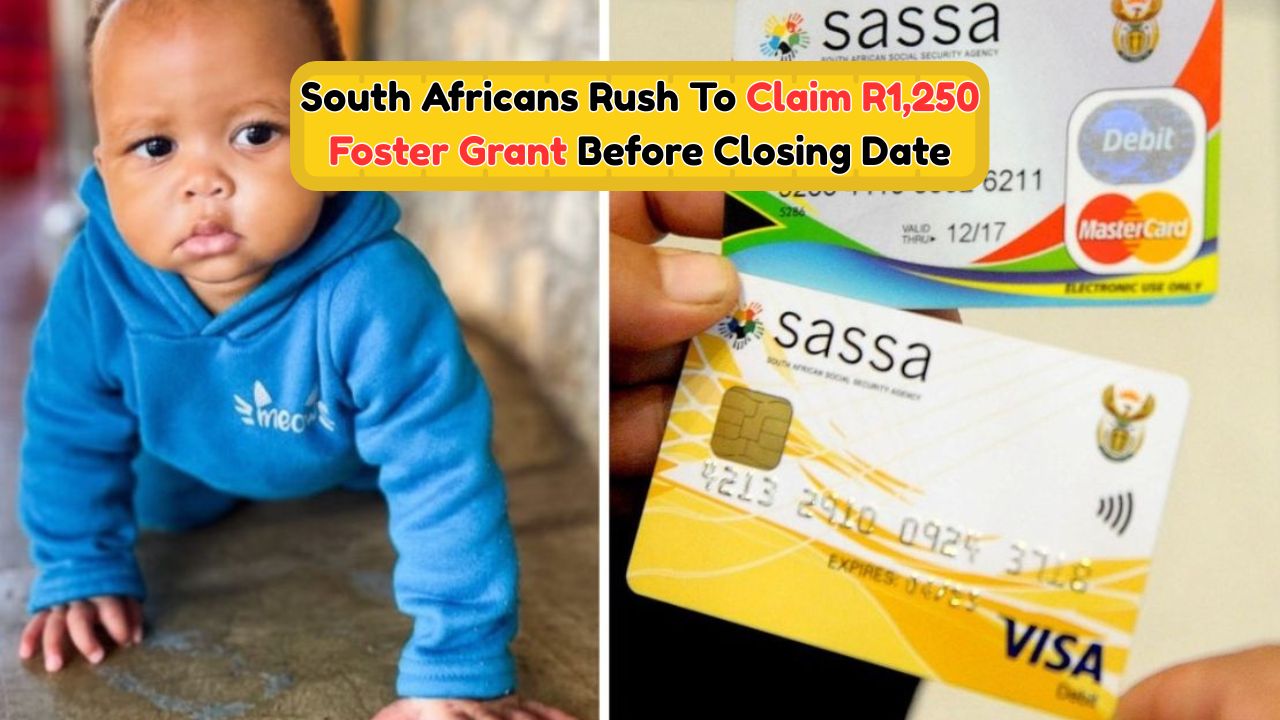Foster Child Grant Deadline: The South African Social Security Agency (SASSA) is urging eligible foster parents to ensure they secure their R1,250 Foster Child Grant before the impending deadline. As economic challenges continue to impact households across South Africa, this grant provides crucial support to families caring for foster children. The grant is designed to help with the additional costs associated with child-rearing, such as education, healthcare, and daily living expenses. Securing this financial aid is vital for foster parents to continue providing a stable and nurturing environment for their foster children. With the deadline fast approaching, it’s essential to understand the application process, eligibility criteria, and the importance of acting swiftly to avoid missing out on this indispensable support.
Understanding the Foster Child Grant Application Process
Applying for the Foster Child Grant involves a straightforward but essential process that requires attention to detail to ensure approval. To begin with, applicants must gather all necessary documentation, which includes certified copies of the child’s birth certificate, the foster care court order, and the applicant’s South African ID. These documents are crucial in verifying the eligibility of both the foster child and the caregiver. Once the documentation is in order, the application can be submitted at a local SASSA office. It’s important to note that the grant is only available to those who are legal foster parents under the South African Children’s Act, which mandates that a foster care order must be in place. Once submitted, the application undergoes a review process to confirm all provided information is accurate and meets the required standards. The approval process may take some time, so it’s advisable to apply well before the deadline to avoid any last-minute issues or delays. Understanding these steps ensures that foster parents receive much-needed financial support without unnecessary complications.
Eligibility Criteria for the R1,250 Foster Child Grant
Eligibility for the R1,250 Foster Child Grant is determined by several key criteria set by SASSA. Firstly, the foster child must be below the age of 18, although the grant can continue until the age of 21 if the child is still in school. The foster parent must have a legally recognized foster care order from the court, which serves as proof of the caregiving arrangement. Additionally, the grant is only available to South African citizens, permanent residents, or refugees living within the country. It’s also critical that the foster child resides with the foster parent on a full-time basis. The intention behind these criteria is to ensure that the grant supports genuine foster care arrangements, providing financial assistance to those who are directly responsible for the child’s welfare. Understanding these requirements not only facilitates the application process but also highlights the importance of maintaining legal documentation and fulfilling the responsibilities of a foster parent. Meeting these criteria is essential for securing this government support, which plays a significant role in the lives of many foster families across South Africa.
Maximizing the Benefits of the Foster Child Grant
The R1,250 Foster Child Grant is more than just financial assistance; it’s a crucial tool for enhancing the quality of life for foster children. To maximize the benefits of this grant, foster parents are encouraged to allocate funds towards essential expenses such as education and healthcare. Investing in a child’s education, for instance, can have long-term positive impacts, providing them with better opportunities in adulthood. Healthcare is another critical area where the grant can be utilized, ensuring that foster children receive necessary medical attention and vaccinations. Additionally, the grant can be used to cover everyday expenses like clothing, food, and other basic necessities, which are integral to providing a stable and supportive home environment. By strategically utilizing the funds provided by the grant, foster parents can significantly improve the well-being and future prospects of their foster children. It’s also advisable to keep abreast of any changes or updates regarding the grant to ensure continued support.
Why Timely Application is Crucial for the Foster Child Grant
Acting promptly is critical when it comes to applying for the Foster Child Grant. Delays in application can lead to missed opportunities and financial strain for foster families. With the deadline approaching, it’s vital to prepare all necessary documentation and submit the application as soon as possible to avoid last-minute issues. Early application also allows time for any potential corrections or additional information requests from SASSA, ensuring a smoother process overall. Beyond administrative concerns, timely application ensures continuous support for the child, preventing any gaps in financial assistance that could affect their care and well-being. Foster parents are encouraged to stay informed about application timelines and requirements to ensure they do not miss this essential deadline. By being proactive and organized, foster families can secure the grant and provide the best possible care for their foster children, contributing to a brighter and more stable future for them.

